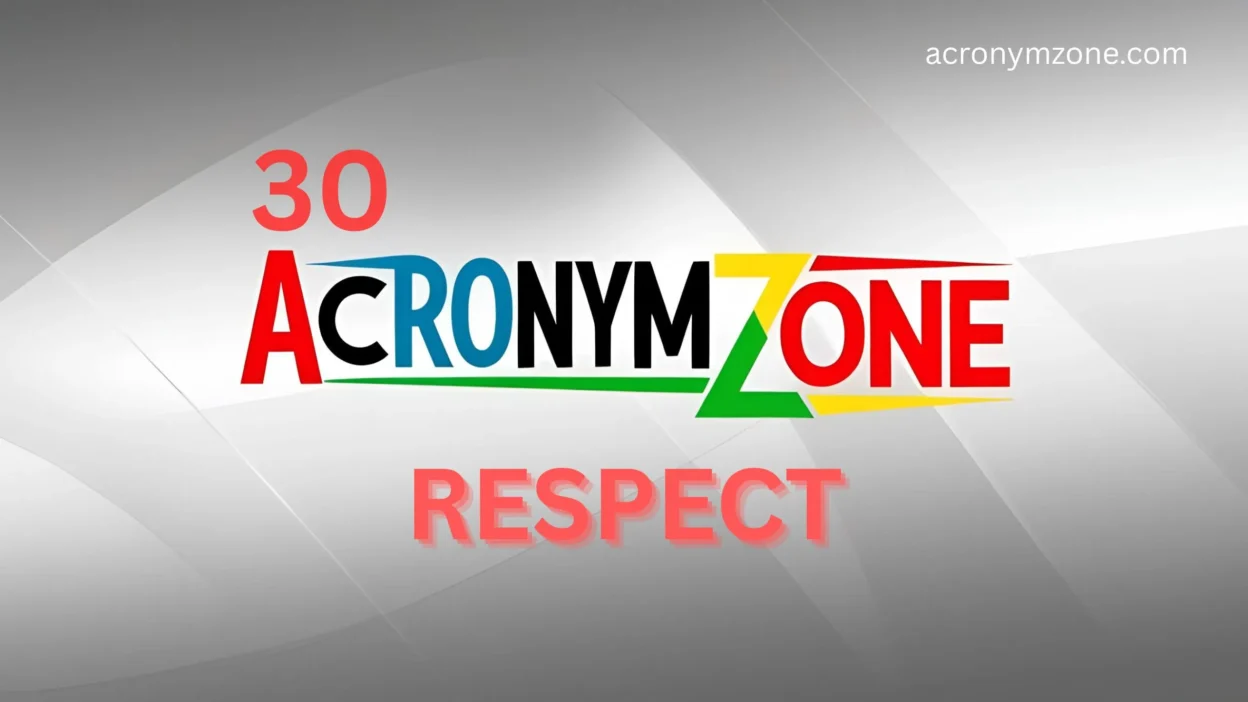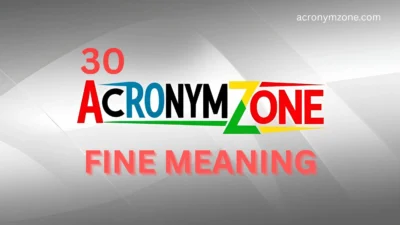Respect is one of those timeless values that almost everyone agrees is essential—but what does it really mean? At its core, respect involves showing regard, honor, or esteem for someone or something. It’s about consideration, deference, and often, humility.
Sometimes, respect means speaking up. Other times, it means stepping back, being modest, or even staying silent.
But the word “respect” can carry many shades of meaning depending on tone, intent, and context. Whether you’re writing, speaking, or simply trying to navigate social dynamics, having a broad vocabulary helps express exactly what kind of respect you mean.
Let’s explore 30 alternative words (acronyms or synonyms) for “respect”—each with a different nuance. For every word, you’ll find:
- A brief definition
- A quick example
- And guidance on when and how to use it
🔤 30 Alternatives to “Respect” and When to Use Them
- Admiration
Warm approval or regard.
“I’ve always had deep admiration for her resilience.”
👉 Use when emphasizing positive feelings toward someone’s qualities or achievements. - Esteem
High regard, often formal.
“He is held in high esteem by his peers.”
👉 Best in professional or academic contexts. - Deference
Yielding to someone out of respect.
“Out of deference to her experience, we followed her advice.”
👉 Great for hierarchical situations—shows humility or seniority. - Reverence
Deep, almost spiritual respect.
“They looked at the monument with reverence.”
👉 Use for sacred or solemn contexts. - Honor
Respect mixed with recognition.
“It was an honor to work with him.”
👉 Common in awards, acknowledgments, or tributes. - Regard
General consideration or respect.
“She has little regard for social status.”
👉 Neutral tone; useful in both positive and critical contexts. - Recognition
Acknowledging someone’s contribution or status.
“He finally received the recognition he deserved.”
👉 Perfect for achievements or workplace acknowledgment. - Appreciation
Grateful recognition.
“I appreciate your honesty.”
👉 Use when gratitude is a key emotional layer. - Veneration
Profound reverence, usually for elders or spiritual figures.
“The village held the elder in veneration.”
👉 Formal, often in cultural or religious texts. - Politeness
Behavior showing respect.
“He treated everyone with politeness and grace.”
👉 Practical, day-to-day contexts; tied to manners. - Courtesy
Respect in action.
“She offered her seat out of courtesy.”
👉 Often linked to social etiquette. - Obedience
Following authority out of respect.
“The dog’s obedience showed respect for its trainer.”
👉 Use when hierarchy or discipline is central. - Consideration
Thoughtful awareness of others.
“He showed great consideration for her feelings.”
👉 Emotionally sensitive situations. - Tolerance
Respect for different views or behaviors.
“We need more tolerance in our discussions.”
👉 Especially relevant in diverse or multicultural settings. - Acceptance
Respecting others by embracing differences.
“They gained acceptance in the community.”
👉 Inclusive tone; values-based usage. - Humility
Respect through modesty.
“Her humility earned everyone’s respect.”
👉 Use when someone shows grace despite power or success. - Deportment
Respect shown through behavior or conduct.
“His deportment at the event was exemplary.”
👉 Formal and somewhat old-fashioned. - Dignity
Self-respect or respect from others.
“She maintained her dignity under pressure.”
👉 Evokes emotional strength and self-worth. - Civility
Polite behavior even in disagreement.
“Civility in debate leads to better understanding.”
👉 Ideal for discourse or workplace conflict. - Courtesy
Acts of polite respect.
“He opened the door out of courtesy.”
👉 Common in interpersonal interactions. - Gratitude
Respect rooted in thankfulness.
“He bowed in gratitude.”
👉 Use when emphasizing a respectful response to kindness. - Awe
Respect mixed with wonder.
“She watched the eclipse in awe.”
👉 For powerful, emotional, or majestic moments. - Loyalty
Respect shown through unwavering support.
“His loyalty to the cause never wavered.”
👉 Common in friendships, teams, and values. - Allegiance
Formal loyalty, especially to institutions.
“He pledged allegiance to the flag.”
👉 Use in political, national, or formal group contexts. - Submission
Yielding from respect or duty.
“She acted in submission to the court’s ruling.”
👉 May imply power imbalance; use with care. - Obeisance
Bowing or acting with deferential respect.
“They showed obeisance before the emperor.”
👉 Archaic or ceremonial tone. - Reticence
Reserved behavior out of respect.
“He remained reticent during the elders’ discussion.”
👉 Suggests thoughtful silence, often out of modesty. - Courtesy
(Yes, again!) It overlaps with several other concepts like politeness and etiquette, showing how common and versatile it is.
“Courtesy goes a long way in customer service.”
👉 Every social interaction can benefit from this word. - Chivalry
Respectful behavior, especially toward women.
“He displayed chivalry by helping her with the bags.”
👉 Can sound outdated; use with awareness of gender context. - Acknowledgment
Simple recognition of another’s status or value.
“A nod of acknowledgment showed he noticed me.”
👉 Subtle but effective in low-key interactions.
💡 How to Choose the Right Alternative
Picking the right synonym for “respect” depends on:
- Tone: Is the moment serious, formal, casual, or emotional?
- Context: Are you in a workplace, spiritual, cultural, or personal setting?
- Relationship: Are you talking about peers, elders, leaders, or strangers?
- Cultural sensitivity: In some cultures, deference and silence are more respectful than praise. In others, open admiration is welcomed.
Here’s a quick guide:
| If you want to show… | Use words like… |
| Humility or Modesty | Humility, Reticence, Deference |
| Praise or Approval | Admiration, Esteem, Recognition |
| Formal or Ceremonial Respect | Reverence, Obeisance, Allegiance |
| Everyday Courtesy | Politeness, Courtesy, Consideration |
| Emotional Warmth | Appreciation, Gratitude, Loyalty |
| Respect through Conduct | Civility, Deportment, Dignity |
🎯 Conclusion
“Respect” isn’t one-size-fits-all. By expanding your vocabulary, you gain the power to express subtle shades of this powerful concept.
Whether you’re writing a heartfelt letter, speaking at a ceremony, or navigating a tricky conversation, choosing the right synonym can make your message more thoughtful, accurate, and impactful.
So next time you feel the need to say “respect,” pause and consider: what kind of respect do I mean? Let the words you choose reflect that depth.

William is a timeless and widely respected name often associated with leadership, intelligence, and integrity. Individuals named William are commonly known for their strong sense of responsibility, practical mindset, and ability to adapt across personal and professional environments. With roots in history and culture, the name William has been carried by kings, innovators, writers, and modern professionals alike, symbolizing reliability and influence.




